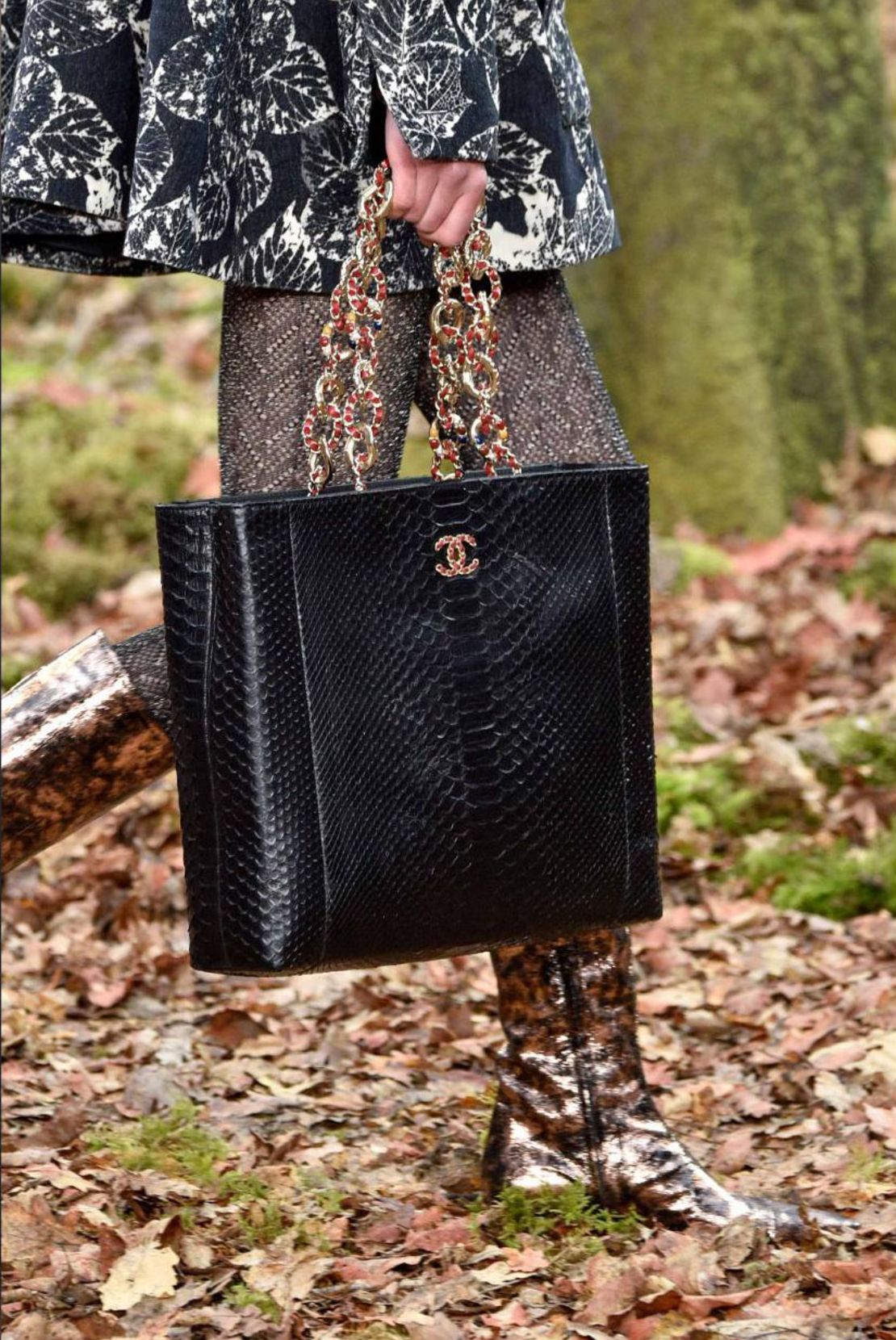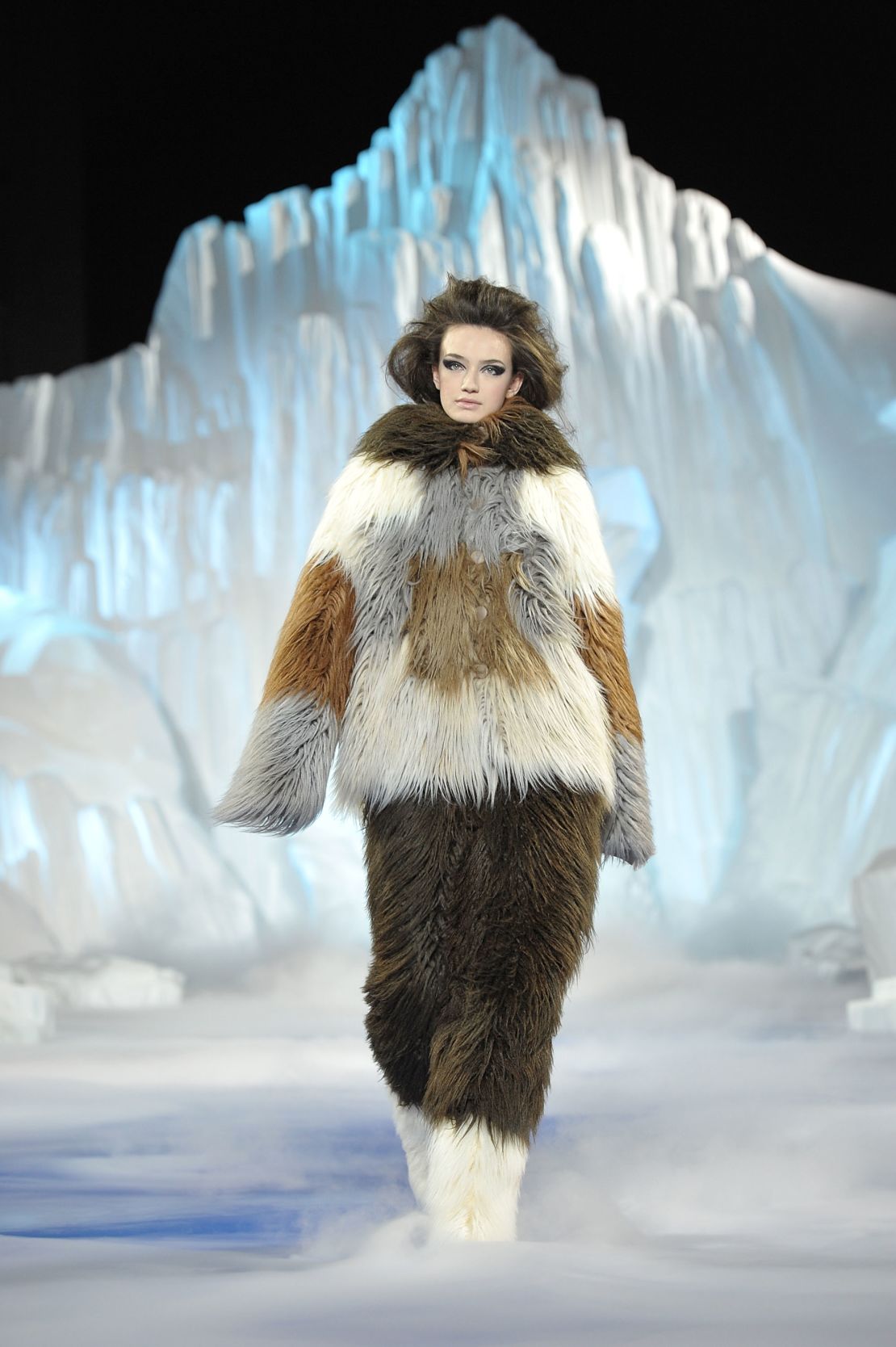Chanel has agreed to ban fur and exotic skins from its collections, saying it wanted to maintain ethical standards and following pressure from animal rights campaigners.
The internationally renowned French fashion house announced that it will stop producing garments and accessories made from animal fur, as well as leathery skins such as crocodile, lizard and snake.
A spokeswoman for Chanel told CNN that the decision was taken partly because it is not possible to obtain such products which meet the company’s principles.
She said: “At Chanel, we are continually reviewing our supply chains to ensure they meet our expectations of integrity and traceability. In this context, it is our experience that it is becoming increasingly difficult to source exotic skins which match our ethical standards.”
The spokesperson confirmed that new policy also applies to fur, adding that this decision provides “an opportunity to create a new generation of high-end products.”

The move has been welcomed as a campaign victory by the the People for the Ethical Treatment of Animals (PETA), whose motto is, in part, that “animals are not ours to wear.”
Tracy Reiman, executive vice president of PETA, said in a statement: “The champagne corks are popping at PETA, thanks to Chanel’s announcement that it’s kicking fur and exotic skins – including crocodile, lizard, and snake skin – to the curb.
“For decades, PETA has called on the brand to opt for luxury, cruelty-free fashion that no animal had to suffer and die for, and now it’s time for other companies, like Louis Vuitton, to follow the lead of the iconic double C’s and do the same.”
Chanel’s creative director since 1983 is Karl Lagerfeld. He took the job 12 years after the death of its founder Coco Chanel. In a former role at Fendi, he introduced the use of skins such as mole, rabbit, and squirrel pelts into his designs.
PETA believes there is no longer a compelling argument for using animal products, as “advancements in textiles have made faux fur and vegan leather nearly indistinguishable from animal pelts and skins.”

Gucci announced a similar move last year by pledging not to use mink, coyote, raccoon dog, fox or any other animal bred or caught for its fur.
In 2016, Italian designer Giorgio Armani announced that his brands would end their use of fur, “reflecting our attention to the critical issues of protecting and caring for the environment and animals.”
Vivienne Westwood, Calvin Klein and Ralph Lauren are also fur-free.
In recent seasons, many brands have embraced fake fur, with the genuine article increasingly seen as outdated.
“Real fur is extraordinarily old-fashioned,” Stella McCartney, whose own brand is fully vegetarian, told CNN in 2015. “It’s not relevant, it’s not sexy, it’s not fashionable, and it’s not cool.”
Chanel joins other labels such as ASOS, Nike, Nine West, Puma and numerous others that have already banned exotic skins, according to PETA.

